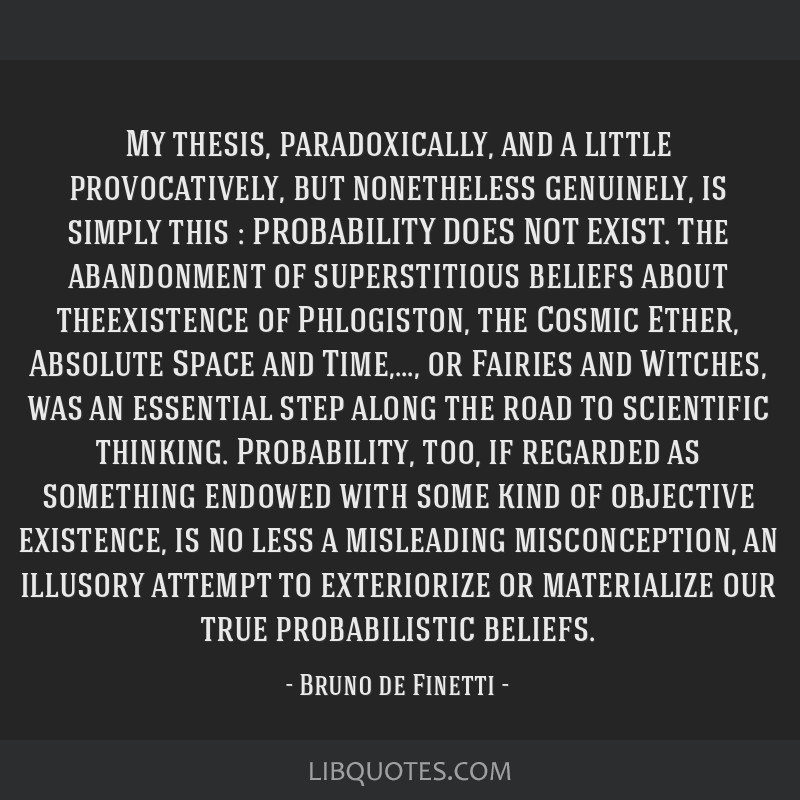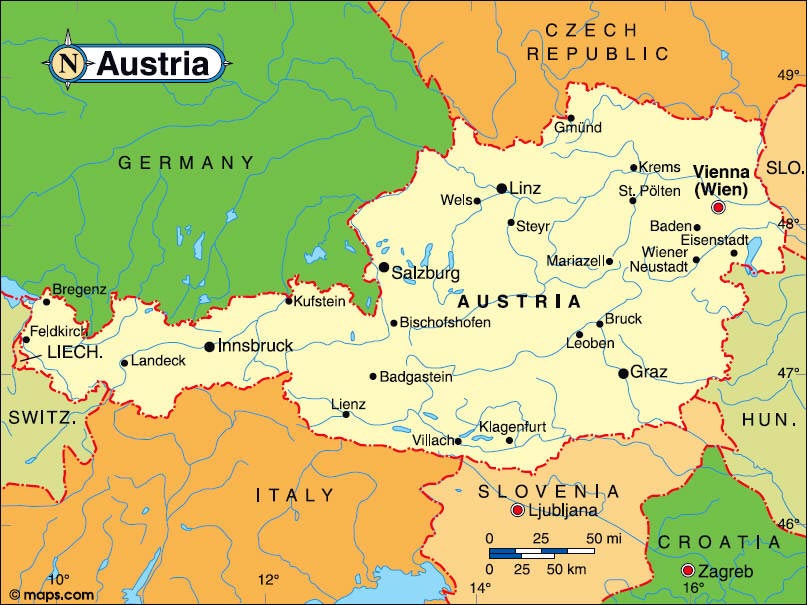Ark of the Covenant
Mediate
Profit
调解利润
Tiáojiě lìrùn
利益を仲介する
Rieki o chūkai suru
ps131, 132
Mediata prodest
The priest is not proud
when with objectivity endowed.
The cleric is a detective
when research is the objective.
Simple expression is the task that matters
to explain the elements of the pattern.
"I still my soul to make it quiet.
I release my thought for mental silence.
"My soul is made quiet with this request
like a child upon its mother's breast."
Wait upon the test of science
to show the way to self-reliance.
Remember what the priest endured
to show how hardship made the feast secure.
The horse ran to overcome the halter.
It passed the inn. It did not falter.
The elder made a promise that he vowed to keep.
He would not allow his eyes to sleep.
"I will not lay my head on my pillow to rest
until I find the place to build a temple to be divinely blessed."
We heard that the ark of the covenant was in a fruitful place.
We found it in the fields of the forest in a beautiful state.
Let us go stand near the symbol of the divine presence
that we may enjoy the feeling of the essential essence.
Arise to shine on your resting place
between the wings of the cherubim by your grace.
The wings have become an open book
where those who seek faith may come to look.
Let your pastor be clothed with the rightness of faith.
Let your faithful people sing with joy in the sacred space.
Do not turn away the face of your Anointed.
The love of the beloved uses oil as the ointment.
The beloved was true to the law insofar as he was able.
He did not punish non-lethal sin in a way that was fatal.
The humble citizen defended himself against charges that were false.
Success detained him without cruelty to check reports for embellished faults.
The Lord has sworn an oath in faith to love
for those who are true to the spirit of the dove.
Love God with your heart, understanding and strength.
Love your relations as yourself with attention to length.
You are not far from the kingdom of heaven in law.
Your faith is the leaven to overcome difficulty caused by flaws.
The fruit of your labor
will be seen with favor
as long as it serves
the network of nerves.
If your children keep my covenant
with the testimony of love in it
they will retain your power in governance
for strength in sustenance.
Zion is the sacred space between the wings of the pages.
It is the habitation for which we sing with the sages.
"I will delight in this place forever.
I will dwell in this state with pleasure."
The economy will be blessed with employment.
Earned income will be by self-appointment
in the service of public enjoyment.
Your priesthood will be clothed with salvation.
The faithful will help to build a productive nation.
The fruit of the harvest will bless the table with provision.
The light for the Anointed is prepared to share wisdom.
Those loyal to the royal priesthood will shine.
Their achievement will be a share in the divine.
--------------------------
Psalm 131
Domine, non est
Dominated, is not
1 O Lord, I am not proud;
I have no haughty looks.
2 I do not occupy myself with great matters,
or with things that are too hard for me.
3 But I still my soul and make it quiet,
like a child upon its mother's breast;
my soul is quieted within me.
4 O Israel, wait upon the Lord,
from this time forth for evermore.
132 Memento, Domine
Remember, Dominated
1 Lord, remember David,
and all the hardships he endured;
2 How he swore an oath to the Lord
and vowed a vow to the Mighty One of Jacob:
3 "I will not come under the roof of my house,
nor climb up into my bed;
4 I will not allow my eyes to sleep,
nor let my eyelids slumber;
5 Until I find a place for the Lord,
a dwelling for the Mighty One of Jacob."
6 "The ark! We heard it was in Ephratah; (fruitful)
we found it in the fields of Jearim. (forest)
7 Let us go to God's dwelling place;
let us fall upon our knees before his footstool."
8 Arise, O Lord, into your resting-place,
you and the ark of your strength.
9 Let your priests be clothed with righteousness;
let your faithful people sing with joy.
10 For your servant David's sake,
do not turn away the face of your Anointed.
11 The Lord has sworn an oath to David;
in truth, he will not break it:
12 "A son, the fruit of your body
will I set upon your throne.
13 If your children keep my covenant
and my testimonies that I shall teach them,
their children will sit upon your throne for evermore."
14 For the Lord has chosen Zion;
he has desired her for his habitation:
15 "This shall be my resting-place for ever;
here will I dwell, for I delight in her.
16 I will surely bless her provisions,
and satisfy her poor with bread.
17 I will clothe her priests with salvation,
and her faithful people will rejoice and sing.
18 There will I make the horn of David flourish;
I have prepared a lamp for my Anointed.
19 As for his enemies, I will clothe them with shame;
but as for him, his crown will shine."
-------------------------
Shimei- my reputation
Gera- dove
Abishai- father of a gift
Zeruiah- pain
2 Samuel 19:18b-23
Shimei son of Gera fell down before the king as he was about to cross he Jordan. He said, 'May my lord not hold me guilty or remember how your servant did wrong on the day my lord the king left Jerusalem. May the king not bear it in mind. Your servant knows that I have sinned. I have come this day, the first of the house of Joseph to come down to meet my lord the king.'
Abishai son of Zeruiah answered, 'Shall not Shimei be put to death for this because he cursed the LORD's anointed?' David said, 'What have I to do with you, you sons of Zeruiah, that you should today become adversary to me? Shall anyone be put to death in Israel this day? Do I not know that I am this day king over Israel?' The king said to Shimei, 'You shall not die.' He gave him his oath.
-------------------------
The beloved was true to the law insofar as he was able.
He did not punishment non-lethal sin in a way that was fatal.
===================
Felix- lucky
Lysias- destroyer
Acts 24:22-23
Felix, who was rather well informed about the Way, adjourned the hearing with the comment, 'When Lysias the tribune comes down, I will decide your case.' Then he ordered the centurion to keep him in custody, but to let him have some liberty and not to prevent any of his friends from taking care of his needs.
-------------------------
The humble citizen defended himself against the charges as false.
He was detained without cruelty to check reports for embellished faults.
===================
Mark 12:32-34
The scribe said to him, 'You are right, Teacher. You have said that "He is one. Beside him there is no other" and "love him with all the heart, the understanding and the strength" and "love one's neighbor as oneself." This is much more important than all whole burnt offerings and sacrifices.' When Jesus saw that he answered wisely, he said to him, 'You are not far from the kingdom of God.' After that no one dared to ask him any question.
-------------------------
Love God with your heart, understanding and strength.
Love your relations as your self with attention to length.
You are not far from the kingdom of heaven in this law.
Your faith is the leaven to overcome difficulty caused by flaws.
===================
German idealism lent itself to socialism. American idealism has been used for what is right about capitalism.
Devaluations
Max Scheler
b. 8.22.1874 Munich, Germany
d. 5.19.1928 Frankfurt, Germany
Max Ferdinand Scheler was a German philosopher known for his work in phenomenology, ethics and philosophical anthropology. He developed the method of the founder of phenomenology, Edmund Husserl.
Martin Heidegger praised him with Ortega y Gasset as "the strongest philosophical force in... contemporary Europe" after his death in 1928.
Karol Wojtyła, later Pope John Paul II, defended his doctoral thesis in 1954 on the evaluation of the possibility of "Constructing Christian Ethics" based on the system of Max Scheler.
Munich
Munich lies on the elevated plains of Upper Bavaria. Bavaria is in the southeastern corner of Germany. The city is about 50 km (31 mi) north of the northern edge of the Alps at an altitude of about 520 m (1,706 ft) above sea level. The local rivers are the Isar and the Würm. Munich is situated in the Northern Alpine Foreland.
It is the capital and most populous city of Bavaria, the second most populous German federal state. It is the third-largest city in Germany with a population of around 1.5 million. It comes after Berlin and Hamburg in size. It is the 12th-largest city in the European Union. The city's metropolitan region is home to 6 million people.
The name of the city is derived from the Old/Middle High German term Munichen, meaning "by the monks". The Benedictine order ran a monastery at the place that was later to become the Old Town of Munich. A monk is depicted on the city's coat of arms.
The city became the capital of the new Kingdom of Bavaria in 1806. The state's parliament (the Landtag) and the new archdiocese of Munich and Freising were located in the city.
Landshut University was moved to Munich 20 years later. Many of the city's finest buildings belong to this period. They were built under the first Bavarian kings.
Ludwig I rendered outstanding services to Munich's status as a center of the arts. He attracted numerous artists and enhanced the city's architectural substance with grand boulevards and buildings.
Ludwig II came to be known the world over as the fairytale king. He was mostly aloof from his capital and focused more on his fanciful castles in the Bavarian countryside. His patronage of Richard Wagner secured his posthumous reputation, as do his castles, which still generate significant tourist income.
Max Scheler
Max Scheler was born in Munich, Germany on 22 August 1874 to a Lutheran father and an Orthodox Jewish mother.
He was not a particularly strong student, but he showed an interest in the works of Nietzsche. He identified himself as a social democrat and an enthusiastic Marxist.
He turned to Catholicism as an adolescent. He became non-committal prior about 1921. He disassociated from Catholicism and the Judeo-Christian God in public after 1921. He chose to invest in philosophical anthropology.
He started to study medicine at the University of Munich in 1894. He enrolled at the University of Berlin in 1895 for the philosophy and sociology. He attended the lectures of Dilthey and Simmel.
Berlin is 585 km (365 mi.) north of Munich.
Dilthey’s research interests revolved around questions of scientific methodology, historical evidence and the science of history. His view contrasted with the idealism in Germany at the time by his experiential reference differed from British empiricism in basic assumptions. He drew his references from German literary and philosophical traditions.
Simmel was a first generation German sociologist. His approach was neo-Kantian. It laid the foundation for his sociological anti-positivism. He asked the question ‘What is society?’ as a reflection of Kant’s question, ‘What is nature?’ Individuality was a fragmentation of social identity.
The cultivation of individuals through the agency of external forms was conducted by the course of history. He was a forerunner to the structuralist style of reasoning in the social sciences. Urban sociology, symbolic interactionism and social network analysis contributed to the formation of the metropolis.
He transferred to Jena in 1896 to finish his studies with Eucken.
Jena is 260 km (160 mi.) southwest of Berlin.
Eucken advocated for ethical activism as the application for practical idealism. The philosophy of life is for the development of a new culture, not mere intellectualism. It is an application of vital religious inspiration to the practical problems of society.
It was Eucken’s ideas regarding the inner quest for a spiritual life of every human being that drew Scheler’s attention.
It was through this interest in practical idealism that Scheler developed a relationship with the American pragmatism of William James. The two exchanged letters in correspondence.
Scheler received his doctorate on the determination of the relations between logical and ethical principles at the University of Jena in 1897. He worked for his habilitation there as well.
He took a trip to Heidelberg in 1898 and met Max Weber. Weber had an impact on his thought.
Scheler met Husserl at a party in Jena in 1901. He read Husserl’s Logical Investigations a year later. The remainder of this life would be dedicated to the progress of phenomenology.
Scheler was reading French philosophy during this period. He was a major factor in introducing Henri Bergson’s work to German intellectual circles.
Scheler moved his family to Munich in 1906 to start his position there as Privatdozent. A number of students working with the psychologist Theodor Lipps at the University of Munich had founded the Psychologische Verein ("Psychological Association") in 1895.
Lipps was known for the theory of aesthetics that framed the concept of empathy. His work opened a new branch of interdisciplinary research in psychology and philosophy.
Psychology was a discipline on the rise at the turn of the 20th century. The relation between philosophy and psychology was intensely debated. The debate concerned whether psychology is a philosophical discipline or whether philosophy is based on psychology.
The position that logical concepts are psychological have been labeled as “psychologism.” The logical law of the excluded middle has to be interpreted in terms which state that it is impossible for a subject to judge at the same time that p and not-p are true.
Psychologism was contested by a competing approach within the “anti-psychologist” strand. There are different views as to how logical concepts and laws have to be positively defined. They agreed that logic does not depend on psychology.
Husserl's Logical Investigations (1900/01) was critical of the psychologism. A number of participants in the Psychological Association at Munich decided to align themselves with Husserl. They became the Munich Circle of phenomenologists. Scheler joined this group.
The Munich circle included students from both the Psychological Association and the phenomenological group.
A number of Lipps' students followed the lead of Daubert in 1905. They left Munich for the University of Gottingen to work with Husserl. The arrival of students from Munich eventually led to the establishment of a similar student group in Göttingen circa 1910, known as the Göttingen Circle.
Scheler taught at the University of Munich from 1907 to 1910. He lost his teaching privileges due to controversies surrounding the separation from his first wife and reported affairs with students.
He earned his living as a private scholar, lecturer and freelance writer from 1910 to 1919. He joined the circle after the invitation in 1912 to give private lectures in Göttingen.
He was forbidden to teach at a German university so his lectures would often have to be held in hotel rooms rented by his close friend Dietrich von Hildebrand.
The first volume of the Yearbook for Philosophy and Phenomenological Research appeared in 1913. Scheler was a co-editor with 3 others and Husserl.
He published major works such as Phenomenology and Theory of the Feeling of Sympathy and of Love and Hate (1913), Formalism in Ethics and Non-Formal Ethics of Value (Part 1 1913, Part 2 1916), The Genius of War and the German War (1915).
Scheler conceptualized the nation as an intellectual collective entity, which discovers and recognizes itself through war in his famous 1915 essay. The German nation, purified through the war, had the political mission of pushing Russia back into Asia and unifying Europe.
He tried to demonstrate a fundamental difference between Europe and Asia by analysing music, language, religion, gender roles and thought.
He attempted to explain this phenomenon of an all-pervading hate towards Germany in a lecture in Frankfurt in 1916. This prompted his essay “The Causes of Hatred Against Germans”, which was first published in 1917 and again in 1919.
The strongest motivation of the hate laid in the newly established unique German work ethic. The ethic was intensified by political, economic and social requirements. The ancient characteristic pursuit of the infinite which expressed itself in idealism coalesced with the work ethic.
Transcendental phenomenlogy posited a necessary correlation between reality and consciousness. A thing in itself is never one with which consciousness has nothing to do.
Edith Stein became a student of Husserl. She wrote her dissertation on the problem of empathy. It was finished in 1916. She became his teaching assistant.
Scheler had voluntarily enrolled to serve in the war for the airship battalion of the reserve in Cologne, but was not accepted due to his astigmatism. The State Department sent him to Switzerland, Austria and the Netherlands from 1917 to 1918 to influence Catholic circles. He was to give lectures to sick and wounded German soldiers, interned in the neutral Netherlands.
This phase of his war philosophy coincided with the period in which the philosopher developed his theory of value. This theory proceeds on the assumption of the existence of an objective hierarchy of values which can be accessed through intentional feeling of values.
Scheler also composed several articles next to his book on formalism. He was accepted into the Catholic Church. He worked on the prominent Catholic magazine Hochland.
He finally took a strong position against nationalism entirely and committed himself to Europeanism in his lecture “On Europe’s Cultural Reconstruction” in 1917-1918. His Europeanism primarily encompassed continental Europe, but he suggested that England should also be included. This new Europe should be open towards Asia culturally.
Europe was now a “community of intellect and love” in his definition of nation. The unity of Europe was the reference point for a post-war order. He used the term “Europeanism” in an affirmative manner to show a third possibility of forming unity beyond nationalism and internationalism.
Europe was not defined by its geography. It was a concept that connoted a unified, spiritual structure. The collective enemy was the capitalistic, liberal, bourgeois, nationalistic and imperialistic ethos. Europeanism and anti-capitalistic criticism can be identified as constants in his war philosophy.
Scheler received an invitation in 1918 to join the faculty of the newly founded research institute for the social sciences in Cologne. He became professor of philosophy and sociology at the University of Cologne.
He wrote his major work on religion, On the Eternal in Man (1921) during his time at Cologne. He stayed there until 1928. He accepted a new position at the University of Frankfurt early that year.
Scheler was the only scholar of rank of the then German intelligentsia who gave warning in public speeches delivered as early as 1927 of the dangers of the growing National Socialist movement.
'Politics and Morals' and 'The Idea of Eternal Peace and Pacifism' were subjects of talks he delivered in Berlin in 1927. He argued that capitalism was a calculating, globally growing 'mind-set', rather than an economic system in his analysis.
While economic capitalism may have had some roots in ascetic Calvinism, its very mind-set had its origin in modern, subconscious angst as expressed in increasing needs for financial and other securities for protection and personal safeguards as well as for rational manageability of all entities.
The subordination of the value of the individual person to this mind-set was sufficient reason to denounce it and to predict a whole new era of culture and values which he called 'The World-Era of Adjustment'.
Scheler advocated for an international university to be set up in Switzerland. He was at that time supportive of programs such as 'continuing education' and of what he seems to have been the first to call a 'United States of Europe'.
He deplored the gap existing in Germany between power and mind, a gap which he regarded as the very source of an impending dictatorship and the greatest obstacle to the establishment of German democracy.
He died in Frankfurt, Germany at the age of 53 on 19 May 1928. The Nazi dictatorship (1933–1945) suppressed Scheler's work 5 years after his death.
The Germans were like the French in their idealism. They were for socialism in that it was opposed to British and American capitalism. They started to criticize Marx, but they maintained his criticism against Adam Smith.
Marx had used the prediction of proletariat revolution to deflect attention from national dependence upon socialist government. Labor had made such progress in gaining benefits that they had a better quality of life than much of the middle class.
Now socialists subscribe to populist media stories in order to suggest that there is unity in opposition to economic success.
The middle class still has a presumption of professionalism with education for business enterprise. Socialist government was subverting the value of education by the implication that the applicants for higher education had to support the criticism of capitalism.
Liberals made funding for research look like it was entirely dependent upon the government as a source. This lent itself to the perception that the intellectual had to blame the success of the business world for economic inequality.
Capitalism maintains a position for the production of value for the public with products or services. Education and the limitation of political overreach contribute to the production of value.
Organization can be developed when liberals in the national government are not claiming to be the answer to things like gun violence, racism, sexism and capitalism with legislation and increased taxation.
Max Scheler
S. 马克斯舍勒
T. 馬克斯舍勒
马 Ma horse 馬 ba horse Ma まっ マッ Maeg 맥 vein
克 ke gram 克 koku overcome ku く ク seu 스 s
斯 si this 斯 shi this su す ス Chel 첼 cell
舍 She house 舍 seki inn She しぇ シェ leo 러 naughty
勒 lei to force 勒 roku halter ra ら- ラ-
-------------------------
The horse ran to overcome the halter.
It passed the inn. It did not falter.
===================
wiki Max Scheler
SEP Scheler
SEP Phenomenology
wiki Munich
Absolute Self
Kant was Prussian. His philosophy has been used to promote universal disarmament. It is too idealistic in this regard.
Berkeley used the concept of the immaterial as a contrast to material reality. His idealism was conditioned by the search to define knowledge. He was opposed to the liberal implications of Locke's empiricism.
Consider the use of the term absolute with respect to objective judgment. When judgment is restrained by reason to realistic truth, it is guided by impartial considerations. It is not subjectively for prejudice.
The sun shines and the rain falls on people irrespective of prejudiced beliefs conditioned by race, creed or color.









